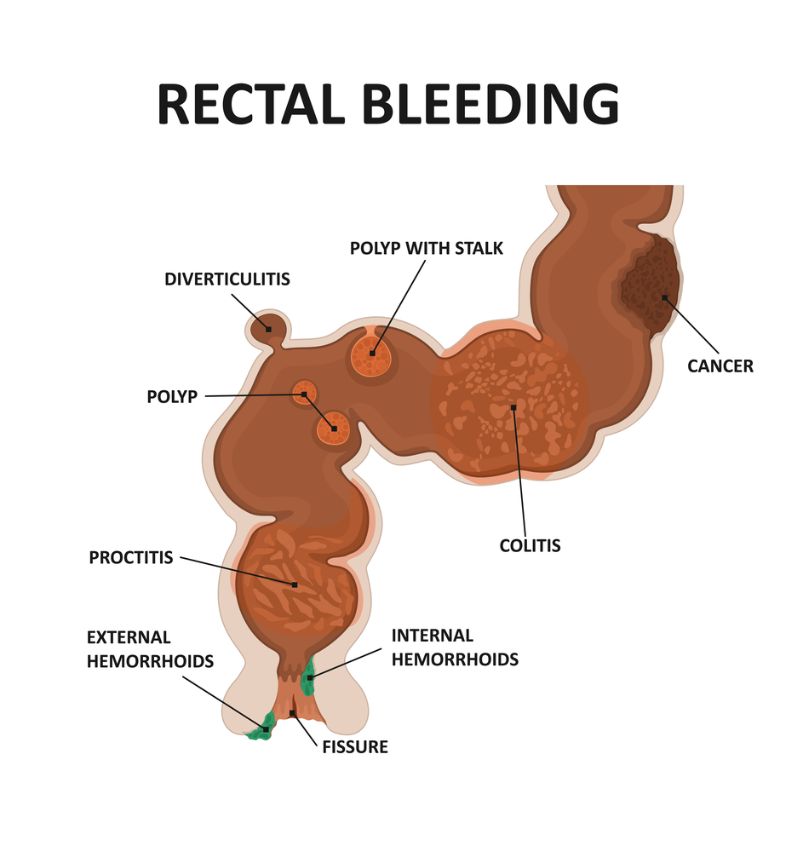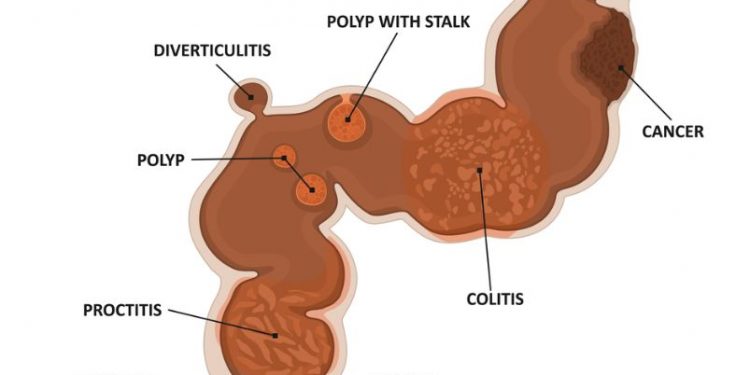Proctitis symptoms can be uncomfortable, swollen and painful. They may cause bleeding, mucous discharge or a sudden urge to make a bowel movement (tenesmus). A doctor can diagnose and treat the condition through a physical exam of the rectum, a tube that connects the intestines to the anus.
A doctor might also order a sigmoidoscopy or colonoscopy. During these procedures, doctors insert a flexible tube with a camera into the anus to check for signs of inflammation or infection in the rectum and colon.
Symptoms of a bout of proctitis can range from mild to severe. Other signs include a sudden and intense urge to have a bowel movement, blood in the stool or rectal bleeding, a feeling of fullness after voiding the stools, and a change in bowel movements.
Some types of inflammatory bowel diseases can lead to proctitis, especially ulcerative colitis and Crohn’s disease. These disorders affect the body’s lining of the intestine, and treatment often includes a combination of medications that reduce inflammation and pain, control the disease process and put the person into remission, which is a period when they are no longer symptomatic.
Antibiotics, steroid suppositories and stool softeners can be used to reduce inflammation. Your physician will prescribe these medications based on your condition and the symptoms you are experiencing.

Your provider might also suggest sitz baths to help ease the discomfort of rectal pain. They can also recommend medicines to help you keep your bowels regular, which will decrease the chances of an episode.
In some cases, your doctor might also prescribe a type of surgery called thermal therapy to destroy abnormal tissue in your rectum that is causing bleeding. These techniques improve the symptoms of proctitis by destroying the damaged tissue and reducing bleeding.
Other types of treatment can be given to reduce the inflammation and relieve the pain of your rectum, such as corticosteroids, which are given by a pill, suppository or enema. These are effective at reducing the inflammation that causes your symptoms, but they can have unwanted side effects and increase your risk of developing osteoporosis, a weakening of bones.
You might be able to prevent proctitis by practicing safe sex practices, such as using a new condom or barrier each time you have sex. Taking a multivitamin that has zinc and iron can also reduce your risk of developing this condition.
Diet and avoiding high-fat or sugary foods can help. These are some of the easiest changes to make as part of a regular lifestyle that will help your body stay healthy and prevent proctitis from happening in the first place.
Foods that are rich in fiber can help relieve your diarrhea by causing less pain and irritation to the rectum. However, some people with proctitis are sensitive to these types of foods, so talk to your healthcare provider about the best foods for you.
Your doctor might also recommend a course of allergy testing to see if you have an allergic reaction to certain foods that are causing your proctitis. This can help find out what food allergies are causing your recurrent episodes of diarrhea and help your doctor determine the right medicine to reduce your symptoms and cure your problem for good.









